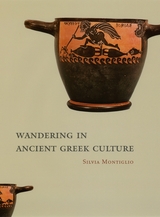4 books about Travelers in literature

Elizabeth Bishop
Kim Fortuny
University Press of Colorado, 2003
Kim Fortuny argues that Bishop's travel poetry reveals a political and social consciousness that, until fairly recently, has largely been seen as absent from her poetry and her life. Fortuny argues that questions of travel bring up questions of form in Bi
[more]

Journeys from Scandinavia
Travelogues of Africa, Asia, and South America, 1840—2000
Elisabeth Oxfeldt
University of Minnesota Press, 2010
For all of the scholarship done on postcolonial literatures, little has been applied to Scandinavian writing. Yet, beginning with the onset of tourism beyond Scandinavia in the 1840s, a compelling body of prose works documents Scandinavian attitudes toward foreign countries and further shows how these Scandinavian travelers sought to portray themselves to uncharted cultures.
Focusing on Danish and Norwegian travelogues, Elisabeth Oxfeldt traces the evolution of Scandinavian travel writing over two centuries using pivotal texts from each era, including works by Hans Christian Andersen, Knut Hamsun, and Karen Blixen (Isak Dinesen). Oxfeldt situates each one in its historical and geopolitical context, and her close readings delineate how each travelogue reflects Scandinavia’s ongoing confrontation between Self and the non-European cultural Other.
A long-overdue examination of travel literature produced by some of Denmark and Norway’s greatest writers, Journeys from Scandinavia unpacks the unstable constructions of Scandinavian cultural and national identity and, in doing so, complicates the common assumption of a homogeneous, hegemonic Scandinavia.
[more]

Road-Book America
Contemporary Culture and the New Picaresque
Rowland A. Sherrill
University of Illinois Press, 2000
In this wide-ranging and sophisticated study, Rowland Sherrill explores the resurgence and transformation of an old literary form--the picaresque narrative--into a new form that he shows to be both responsive and instructive to late twentieth-century American life.
Road-Book America discloses how the old picaresque tradition, embodied in such novels as Henry Fielding's Tom Jones and Daniel Defoe's Moll Flanders, opens to include a number of new American texts, both fiction and nonfiction, that decisively share the characterizing form. Sherrill's discussion encompasses hundreds of American narratives published in the past four decades, including such examples of the genre as William Least Heat-Moon's Blue Highways, John Steinbeck's Travels with Charley, James Leo Herlihy's Midnight Cowboy, Bill Moyers's Listening to America, and E. L. Doctorow's Billy Bathgate.
Sketching the socially marginal, ingenuous, traveling characters common to both old and new versions, Sherrill shows how the "new American picaresque" transforms the satirical aims of the original into an effort to map and catalog the immensity and variety of America.
Open, resilient, perennially hopeful, and endowed with a protean adaptability, the protagonist of the new American picaresque follows a therapeutic path for the alienated modern self. Mining the relevance of the reformulated picaresque for American life, Road-Book America shows how this old form, adaptable as the picaro himself, lays the groundwork for spiritual renewal and a restoration of cultural confidence in some old ways of being American.
Road-Book America discloses how the old picaresque tradition, embodied in such novels as Henry Fielding's Tom Jones and Daniel Defoe's Moll Flanders, opens to include a number of new American texts, both fiction and nonfiction, that decisively share the characterizing form. Sherrill's discussion encompasses hundreds of American narratives published in the past four decades, including such examples of the genre as William Least Heat-Moon's Blue Highways, John Steinbeck's Travels with Charley, James Leo Herlihy's Midnight Cowboy, Bill Moyers's Listening to America, and E. L. Doctorow's Billy Bathgate.
Sketching the socially marginal, ingenuous, traveling characters common to both old and new versions, Sherrill shows how the "new American picaresque" transforms the satirical aims of the original into an effort to map and catalog the immensity and variety of America.
Open, resilient, perennially hopeful, and endowed with a protean adaptability, the protagonist of the new American picaresque follows a therapeutic path for the alienated modern self. Mining the relevance of the reformulated picaresque for American life, Road-Book America shows how this old form, adaptable as the picaro himself, lays the groundwork for spiritual renewal and a restoration of cultural confidence in some old ways of being American.
[more]

Wandering in Ancient Greek Culture
Silvia Montiglio
University of Chicago Press, 2005
From the Archaic period to the Greco-Roman age, the figure of the wanderer held great significance in ancient Greece. In the first comprehensive study devoted to this theme, Wandering in Ancient Greek Culture unearths the many meanings attached to this practice over the centuries. Employing a broad range of literary and philosophical texts, Silvia Montiglio demonstrates how wandering has been conceptualized from Homer's Odysseus—the hero "who wandered much"—in the eighth century BCE to pagan sages of the early Roman Empire such as Saint John the Baptist in the first century AD.
Attitudes toward wandering have evolved in accordance with cultural perspectives, causing some characterizations to persist while others have faded. For instance, the status of wanderers in Greek societies varied from outcasts and madmen to sages, who were recognized as mystical, even divine. Examining the act of wandering through many lenses, Wandering in Ancient Greek Culture shows how the transformation of the wanderer coincided with new perceptions of the world and of travel and invites us to consider its definition and import today.
Attitudes toward wandering have evolved in accordance with cultural perspectives, causing some characterizations to persist while others have faded. For instance, the status of wanderers in Greek societies varied from outcasts and madmen to sages, who were recognized as mystical, even divine. Examining the act of wandering through many lenses, Wandering in Ancient Greek Culture shows how the transformation of the wanderer coincided with new perceptions of the world and of travel and invites us to consider its definition and import today.
[more]
READERS
Browse our collection.
PUBLISHERS
See BiblioVault's publisher services.
STUDENT SERVICES
Files for college accessibility offices.
UChicago Accessibility Resources
home | accessibility | search | about | contact us
BiblioVault ® 2001 - 2025
The University of Chicago Press









